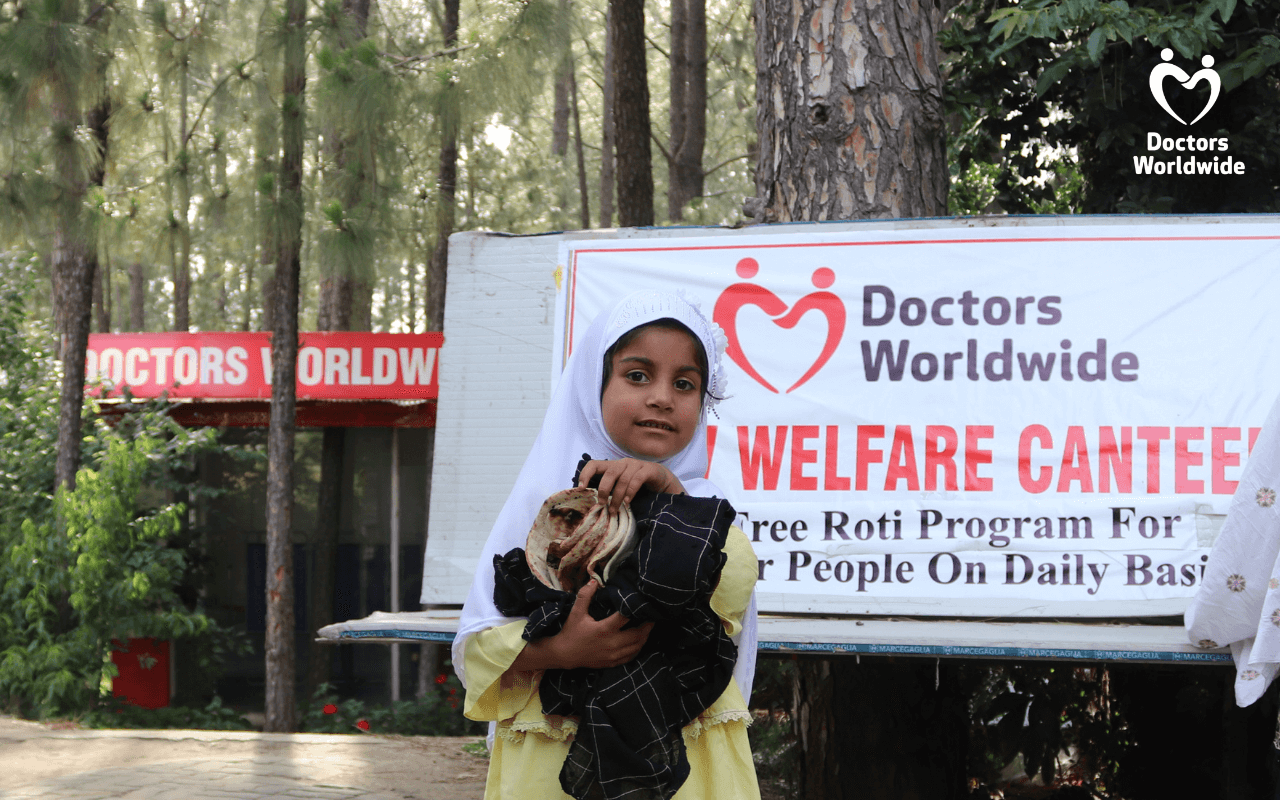Our Sustainable Futures campaign explores the values of Doctors Worldwide - integrity, collaboration, and clinical excellence - and how they are embedded in all of the work we do to ensure long-term, sustainable solutions to healthcare challenges. Today, Tharika - our Project & Communications Support Officer - shares a blog exploring our current food systems, climate change and rising food prices.
Last month, we shared a series of blogs about food insecurity and nutrition as part of our ongoing Sustainable Futures campaign. Coincidentally since then, every meeting I have attended with our project teams, partners and stakeholders working across various programmes around the world has raised one significant issue – rising food prices.
Many of our projects are based in low and middle-income countries such as Malawi, Rwanda, and Pakistan, serving vulnerable communities and those in need of support. For those of us who live in the UK, the rise in food prices is now a constant reality, as the cost of living crisis embeds itself into every aspect of our day-to-day lives. However, much of our current reality is still incomparable to those who live in low to middle-income countries, whose lives were already unstable and whose access to adequate healthcare and nutrition was already limited even before the increased impact of climate change and COVID-19 on our economies and prices skyrocketed.
The cost of our current food systems:
The Fourth Assessment report of the IPCC (2007) estimated that depending on the climate change scenario, 200 million to 600 million more people could suffer from hunger by 2080.
Global food insecurity is on the rise and climate change isn’t the only direct cause for this. In today's fast-paced world, where convenience often takes precedence over sustainability, the way that our food is produced today is a big part of the problem. It has recently been estimated that the global food system is responsible for approximately 1/3rd of greenhouse gas emissions after the energy sector; it is the number one source of methane and biodiversity loss. From deforestation for agriculture and the extensive transportation of food over long distances, our current food systems not only have a role to play in creating the climate crisis but are also not climate resilient. They are also now responsible for critical issues connected to our nutrition and the exorbitant increase in food prices.
Our previous blogs reflected upon communities who already face food insecurity, but the rise in food prices is pushing more people into hunger. In fact, rising food commodity prices in 2021 were a major factor in pushing approximately 30 million additional people in low-income countries toward food insecurity. Furthermore, the inequities within our current food systems are the reason why 3 billion people (42% of the global population) couldn’t afford a healthy diet in 2021(World Bank).
Another reality fostered by our current food systems is connected to a phenomenon known as the “double burden of malnutrition”, where overnutrition (i.e., obesity and overweight) and undernutrition (i.e., wasting and stunting) coexist in all levels of society (i.e., city, families, communities, countries etc). Worldwide, 2.3 billion children and adults are overweight, and more than 150 million children are stunted – in low and middle-income countries these emerging issues overlap in individuals, families, communities and countries (WHO).
Overall, our current food systems are now fuelling a worldwide food crisis, but the people who are the worst hit by this are those who belong to the most vulnerable communities in low and middle-income countries –people who have already been battling pre-existing social inequalities and other impacts of climate change. Our work to provide access to quality healthcare to those in need means we witness these impacts on the vulnerable communities we serve first-hand.
What can we do?
Doctors Worldwide’s Nutrition Programme exists across a number of the countries where we are currently undertaking medical projects, to ensure life-saving nutrition and treatment is accessible to all. Your donations therefore make a significant impact in ensuring the vulnerable individuals we serve have access to food and support, which has become an even more critical need with food prices on the rise.

In March, on International Mother’s Day, we held a home gardening session at our welfare canteen (part of our hospital) in Pakistan for women living in the local community, where they learned how to grow their own vegetables and were also given seed packs to take home and use. This not only provided access to resources and space for local women in the community to foster a new skill, but also provided them with a nature-based, sustainable solution to mitigate the impact of an overloaded food system, through home gardening.
This World Food Day, let us begin by acknowledging the complex connections between the unsustainability of our food systems and the challenges of nutrition and soaring food prices. Whilst it is undeniable that governments, policy-makers, and those in positions of power have the biggest part to play in terms of fostering sustainable and equitable food systems, our own actions as individuals can play a vital role in advocating for change by supporting local and sustainable food sources, volunteering for food drives, reducing food waste and making informed choices about what we eat (i.e., eating more local food, creating sustainable home gardens, fostering a zero-waste kitchen etc).
Donate Now: Nutrition Programme


